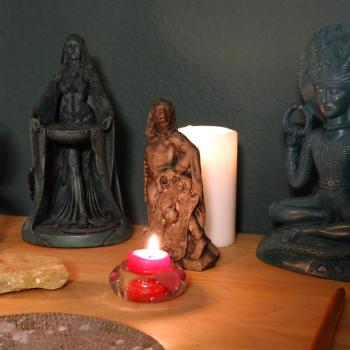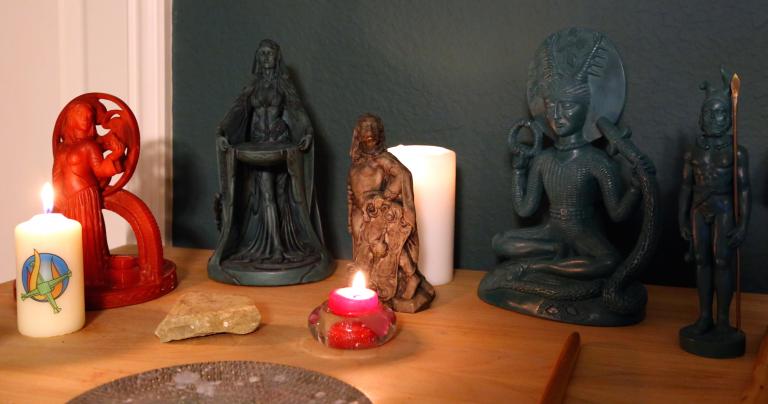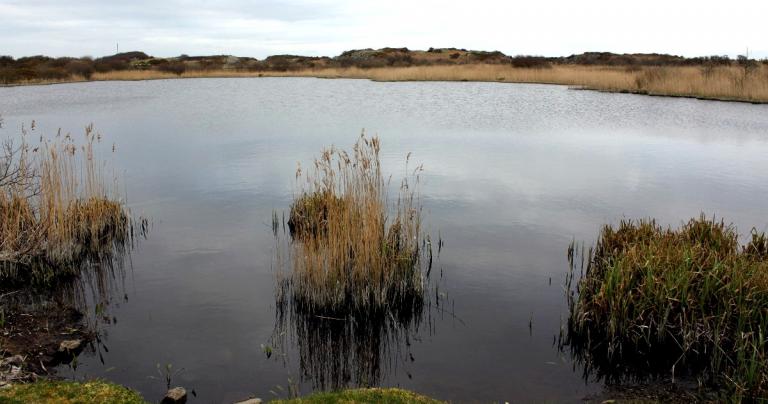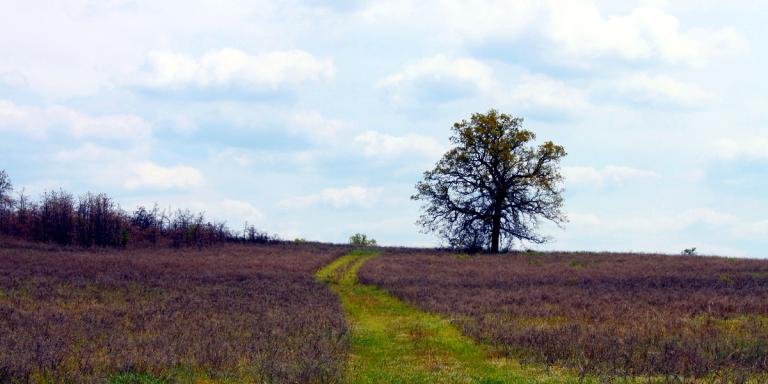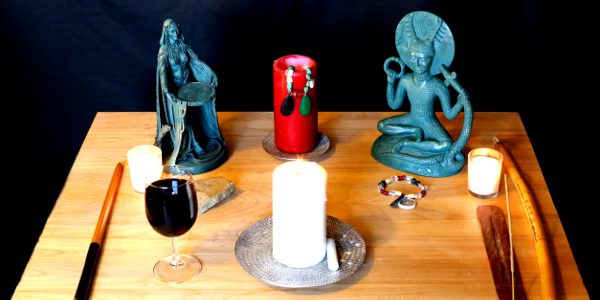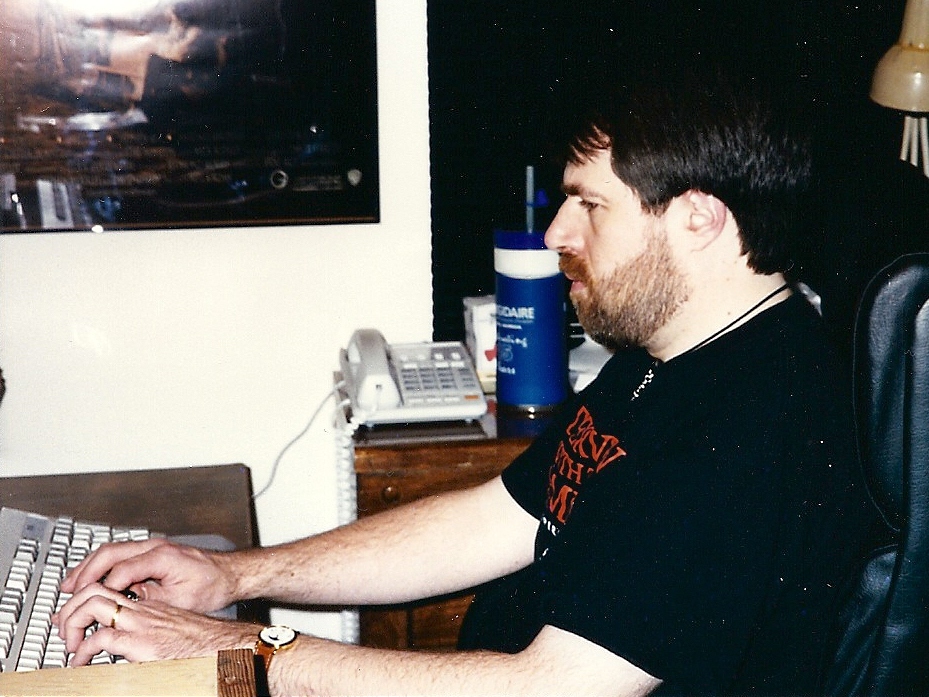I once heard a story about an art professor who divided his class into two groups on the first day of the semester. The first group only had to produce one piece all semester. They could research materials and techniques, plan carefully, and take their time with the creation process. Their final grade depended on how good that one piece was. The second group would be graded solely on quantity – their grades would be determined by how many pieces they turned in, regardless of quality.
At the end of the semester they had a show, and the final pieces of the “quantity only” group were consistently better than the works of the group who were given the whole semester to work on just one thing. That’s because they learned something every time they made a piece of art that helped them make the next piece just a bit better.
This story is probably more apocryphal than historical, but there’s an important truth in it: repetition matters. And it’s as true in our spirituality and in our magic as it is in our arts and crafts.

Learning is an on-going process
Our digital society sometimes gives us the impression that learning is like downloading: you go from “I don’t know how to do this” to “I can do this as well as anyone” after reading one book or watching one video. For small tasks it can be that simple. I didn’t know how to reset the maintenance reminder on my car. So I looked it up on the internet and now I can do it as well as any certified mechanic.
I can change the oil as well as any certified mechanic too. But I can’t do it anywhere close to as fast, because I haven’t done it often enough. Repetition matters. And I can’t change a timing chain at all, because I don’t know how to do it.
Writers often quote Ray Bradbury, who said “everyone’s first million words are crap.” Mine certainly were – go read some of my blog posts from 2008 and 2009. Not all of that is crap, but it’s certainly not as well-written as what I’m writing now. My best guess is that I hit a million words (lifetime, not just on the blog) somewhere in 2011. I can see a noticeable shift in my writing before and after that time. Repetition matters.
Fail fast
“Fail fast” is a cliché in the business world. It recognizes that when you’re trying to do something that’s never been done before, you probably aren’t going to get it right the first time. Emotionally prepare yourself for the reality that you’re almost certainly going to fail the first time you try. But like the second group of art students in the opening story, fail quickly, evaluate your failures, and figure out how to do better on your next try.
Not all fast failure is the same. If those art students just slapped some paint on a canvas so they would have something to turn in, they wouldn’t learn much. But failing and then learning why you failed helps you do better next time. You may fail on your second try as well, but then you’ll learn more. Eventually you’ll succeed.
Failing fast helps maintain optionality. That’s a phrase I learned from Gordon White in The Chaos Protocols.
Make peace with the cognitive reality that you both probably do not really know what you want and definitely do not know the correct way to achieve it from the outset, so re-examine your options at each step and be open to the hitherto-unanticipated route.
The more often you do something, the better you can evaluate whether or not it’s something you really want, and the better you’ll get at figuring out the best way to do it.

Practice magic regularly
All of the above is true when it comes to magic. Reading a book or taking a class will help you get started in the right direction. And if you do the spells properly, you’ll get results, even if it’s your first time.
But despite all the exquisitely detailed spell books you can buy ranging from Silver Ravenwolf to the Greek Magical Papyri, effective magic requires much more than simply following directions. Most of them assume a certain level of expertise (“cast the circle using the usual method”) and few if any of them address the most basic question of all: what to work magic for.
If you want to get good at magic, it takes practice. It takes working spell after spell after spell. Necessity is a great motivator, but if you want to be a professional magician, you have to work magic before you have a need. Do that and when the need finally comes, you’ll have the knowledge and skills to do what needs to be done, quickly and effectively.
If you practice magic often enough you will make mistakes. Ever since “The Sorcerer’s Apprentice” in 1797 we’ve been taught that if we step outside of what we know Bad Things will happen.
Like all mistakes, magical mistakes can be painful. But painful mistakes can also be good learning experiences. So can learning to assess risks and take proper precautions. As Feri Tradition founder Victor Anderson said “anything worthwhile is dangerous.” As his student Thorn Coyle added “not everything dangerous is worthwhile.” Learn to tell the difference.
If I need magical help, I’m not going to the oldest witch or to the witch with the biggest library. I’m going to the witch who gets her hands dirty week in and week out. Repetition matters.

Consistent spiritual practice
Daily spiritual practice is the core of any good religion. Meditation, prayer, offerings, following the sun and moon – whatever it is that you do to stay connected to your Gods, your tradition, and your values. Do it every day. Repetition matters. Consistency matters. Diligence and persistence matter.
If you’re starting a practice, choose what you’re going to do. Build a foundation. Begin a devotional practice. And keep it up.
My experience is that it takes about three weeks – 21 days – of doing something every day with no exceptions for a practice to become a habit. If you aren’t doing it every day (either intentionally, as with a weekly practice, or because you just don’t get it done every day) it’s going to take longer.
Do it long enough and it will become second nature. More importantly, the connections and the values your practice supports will grow and strengthen. Talk to your Gods every day and They’ll be easy to find when times get hard. Wait till times get hard and you may not be able to find Them.
All skills fade with inconsistent use
“It’s just like riding a bike – once you learn, you’ll always be able to do it.”
I didn’t learn to ride a bike till I was an adult, but that cliché was still true. Once I got it, I had it. I’ve gone years without riding, then hopped back on and went pedaling merrily down the street.
What I can’t do, however, is hop on and ride for 20 miles, like I could when I was riding a couple times a week (in addition to running regularly). I can’t go as fast, including going downhill. I can’t maneuver around obstacles very well. My bicycling skills have faded with inconsistent use.
What skills do you need in your magical and spiritual life? Learn them, and then practice them regularly.
What skills do you need in your ordinary life? Learn them, and then practice them regularly.
Repetition matters.



